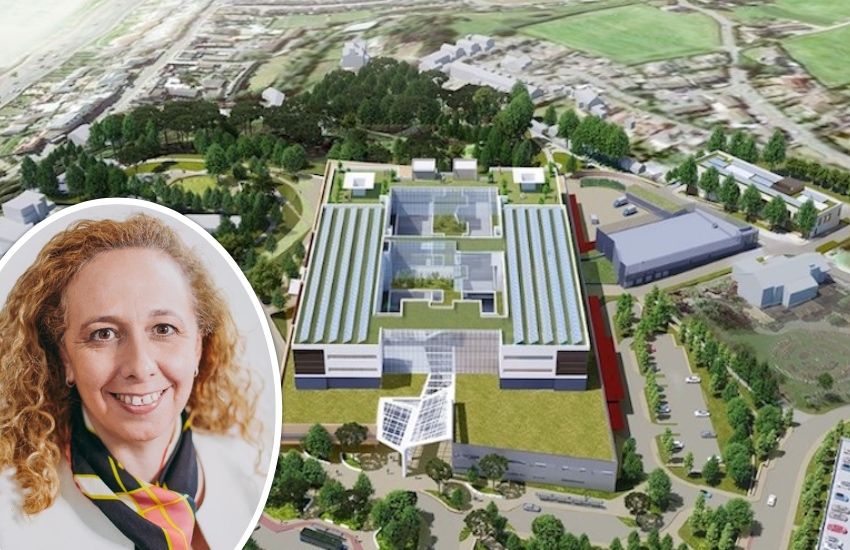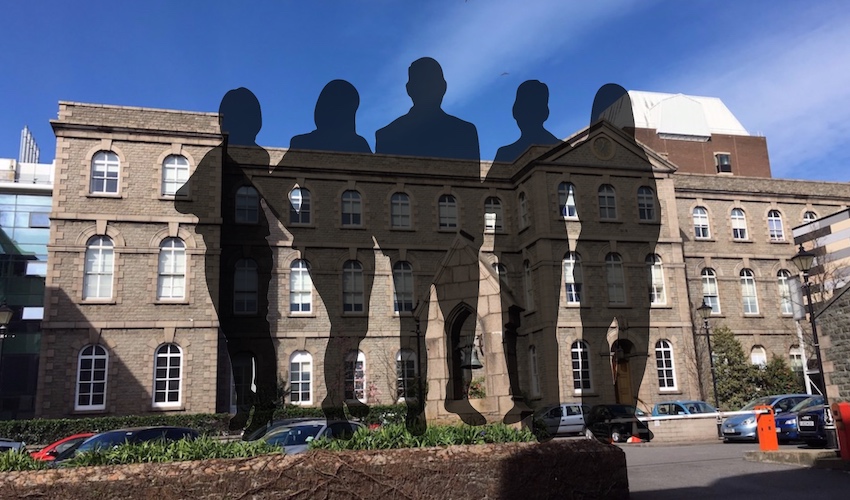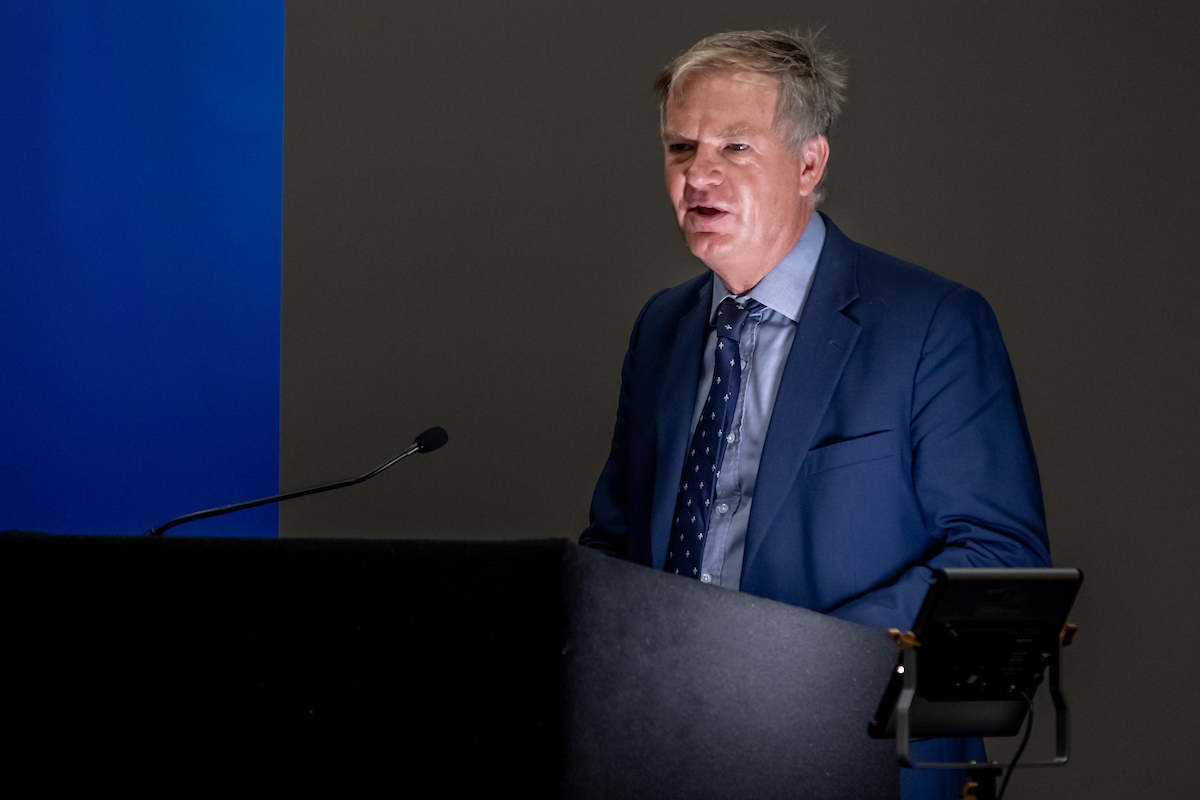


Jersey's government is being told to reveal who facilitated the meetings of a panel of islanders working on the criteria behind the list of sites for the island's new hospital - set to be Jersey's biggest ever building project, costing more than £800million pounds.
A new report by the Public Accounts Committee into the workings of so called 'deliberative bodies', such as the Our Hospital Citizens' Panel, says the name of the facilitator is being withheld, and should be published now the Panel's work is done.
The Committee also found that another panel, the Citizens’ Assembly on Climate Change, ended up costing more than three times the sum originally forecast.
As a result, the PAC has also called for better budgeting, and improved accountability processes, for future panels.
The PAC's report, which is published today, says that In 2015, Jersey commissioned its first Citizens’ Panel on Mental Health. Since 2018, there have been the following four deliberative bodies:
the Care Inquiry Legacy Citizens’ Panel;
the Our Hospital Citizens’ Panel;
the Citizens’ Assembly on Climate Change;
the Assisted Dying Citizens’ Jury.
In all, the PAC has found that the "...Assisted Dying Citizens’ Jury represented the most successful example of a deliberative process in Jersey, due to its transparency, facilitation, availability of presentations and evidence provided to the Citizens’ Jury, minimisation of overspend, and the clear and structured feedback provided by its members. As a result, the PAC would strongly recommend using this as the best practice model for future deliberative bodies."
Their cost has varied from £153,350 for the Care Inquiry Panel to £4,858.67 for the Hospital Panel.
In the main, the PAC have found that, "...the use of Citizens’ Panels, Assemblies and Juries in Jersey have been a valuable process in assisting Government decisions."

Pictured: The identities of the Our Hospital Citizens' Panel have never been published over fears they would be put under pressure.
The Our Hospital Citizens' Panel was set up in early 2020, to "...provide a deliberative civic forum to contribute to the process, engagement, and decision-making for the selection of the site of the Our Hospital Project."
The PAC notes that the Panel didn't produce a list of sites, or direct the design or facilities. Instead they informed "...the decision-making parameters"....which essentially means the criteria on which decisions would be based. Eventually, St Andrew’s Park, People’s Park, Overdale, a group of fields in Five Oaks, and Millbrook Playing field plus farm land, were chosen in a shortlisting report.
It emerged in early 2020 that the Panel was to work in secret, and the identity of its members would not be published, over concerns they might come under "influence" or "pressure" from outsiders. The Panel was supposed to provide a “representative voice” of the community after criticism was levelled at the previous ‘Future Hospital’ project for not taking islanders’ views into account.
However, the PAC noted that the Our Hospital Citizens Panel - whose own selection panel was chaired by former Senator, and Social Security Minister, Francis Le Gresley - was run quite differently from the others, and have now raised concerns over its transparency. They were unable to find out the name of the external facilitator for Panel meetings, as it was claimed to be 'personal information'.
The facilitator was from the UK, and paid a fee of £2,800 - they were chosen by the Project Director, Richard Bannister, the Communications and Engagement Lead, Carl Walker, and the Director of Local Services, Sean McGonigle.
But when the Panel asked for their identity, it was withheld, leading them to specifically recommend as part of their findings that...
"The Government of Jersey should publish the identity or background and experience of the External Facilitator for the Our Hospital Citizens’ Panel now that its work has been completed..."
...and...
"The external facilitator for all future deliberative body established by the Government of Jersey should be made public and carry sufficient and relevant experience in designing and facilitating deliberative bodies and practices."
They also found that the process of deciding who was going to be on the Panel was performed entirely 'in-house' by the Government of Jersey, and overseen by Mr Le Gresley - but the process was not minuted.
The Panel also said it couldn't find a breakdown of the process used to select Mr Le Gresley for the Chair of the selection panel, or why the role was not advertised.

Pictured: Former Government Interim CEO Paul Martin, who told the PAC he didn't know what support had been given to the Panel from his officers.
Further, the Interim Chief Executive of the Government, Paul Martin, told the Committee that he did not know what support from officers had been given to the selection Panel, and...
"The Director General of Infrastructure, Housing and Environment (Andy Scate) informed the PAC that the Our Hospital Project Director (Richard Bannister) and its Communications and Engagement Lead (Carl Walker) joined a range of Government of Jersey colleagues in a scoping session with the Sortition Foundation regarding the establishment of Citizens’ Panels. The Sortition Foundation confirmed in an email to the PAC that there was no involvement “at all” with the Our Hospital Citizens’ Panel."
The PAC said that the Our Hospital Citizens’ Panel was not overseen by a single department, something which should change for future deliberative bodies.
The Committee also found that the core cost of the Citizens’ Assembly on Climate Change had more than doubled, with the final cost over triple the initial cost provided to them - they have therefore raised concerns regarding the quality of budgeting.

Pictured: Emelita Robbins chaired the island's Citizens' Assembly on Climate Change
In total they say £190,793 was spent on this Citizens’ Assembly (including a £19,650 honorarium for participants), with a total spend of £394,544 for the full 'Jersey’s Climate Conversation' deliberative process.
"The PAC is of the view that the sharp increase in the total costs of the Citizens' Assembly included significant increases in honoraria payments and the payments to external support such as expert speakers may have been averted through improved budgeting for contingencies.
"The PAC would highlight its concerns regarding the quality of budgeting for the Citizens' Assembly on Climate Change, and strongly recommends that the Government of Jersey evaluate this process and incorporate learnings into all future deliberative bodies, to avoid significant increases in budget."
Chair of the Public Accounts Committee, Deputy Inna Gardiner, added: "We welcome the way participants of Jersey's deliberative practices have engaged with the important issues being discussed and encourage the Government to provide all Islanders with the opportunity to learn about deliberative processes and encourage democratic engagement. A number of concerns regarding the budgeting and operation of these Panels, Assemblies, and Juries remain and, in turn, the Committee has suggested a framework and policy toolkit to improve the functioning of deliberative practices moving forward."
Comments
Comments on this story express the views of the commentator only, not Bailiwick Publishing. We are unable to guarantee the accuracy of any of those comments.